Unilever wants to spin off its £7bn-sales global ice cream business. Why? Who wants to buy it? And will it work?
It’s the world’s largest ice cream business, with power brands such as Magnum, Ben & Jerry’s and Wall’s driving annual sales of €7.9bn (£6.8bn). But Unilever has put it up for sale, announcing in March to exit by the end of 2025. Why?
The selloff was activated by CEO Hein Schumacher, brought in last October after activist investor Nelson Peltz joined the board, as part of a wider plan that also included cutting 7,500 jobs worldwide. And shares are up more than 20% since it was revealed.
The strategy is arguably nothing new. Ice cream is following other food brands Unilever has hived off over the years, including Birds Eye (2006), Flora (2018) and PG Tips (2022). Only the ambient grocery division remains, with all the focus now on the higher-margin home, personal care and beauty brands.
And there’s an obvious rationale for selling the ice cream division: poor performance. Last year, while Unilever posted underlying sales growth of 7%, ice cream lagged at a “disappointing” 2.3% while volumes slumped 6%. That top-line performance deteriorated further in the first half of the current financial year as it posted yet another “disappointing” period of 0.6% growth amid a 1% volume decline. Competition in China was tough and European sales were dampened by unfavourable weather conditions.
More from The Dairymen 2024:
-
How can marge get back in fashion? Dairymen butter & spreads category report 2024
-
Creative challenge: next-gen packaging ideas to liven up dairy
-
How can plant-based grow again? Dairymen British cheese category report 2024
-
How the dairy category is getting fit for the future
In addition, margins have been hammered by ice cream being at the sharp end of commodity spikes in sugar, dairy, cocoa and energy, which saw underlying operating margins fall to 10.8%, compared with 16.7% for the wider group.
But ice cream is also “a clear outlier” in Unilever’s portfolio, says Schumacher, with its own distinct, capital-intense supply chain. The ice cream business involves not only dedicated distribution and storage, but also the provision and maintenance of over three million freezers worldwide.
“The separation will result in a more focused Unilever. It will be a simpler business and a much more focused portfolio,” adds Schumacher.
As an added bonus, it also solves the continued headache of the political pronouncements of Ben & Jerry’s and its awkward semi-independent status.
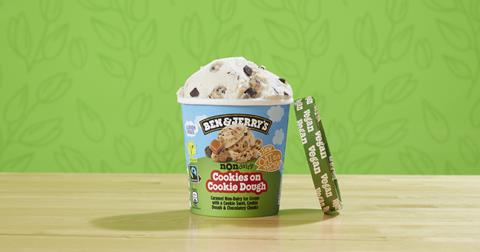
How much is the business worth?
But the success of the divestment also depends on the cash Unilever can raise from it. It’s been valued at £15bn. Who would want to pay that for a low-growth business, with high fixed costs – and one also on the wrong end of key consumer trends in terms of health, UPFs and the effects of fat-loss drugs on diets?
On the contrary; the appeal is strong, says Akeel Sachak, global head of consumer at Rothschild. “From a category and market position point of view, ice cream should be an attractive prospect whether as a buyout or an IPO or a demerger. It’s the global leader in this category and it’s a high margin category, with pretty robust and dependable growth.”
And while Unilever has said a spinoff into a separately listed business is “the most likely separation route”, Unilever is also reported to have opened talks with from some of the world’s biggest private equity firms, including Advent International, Blackstone, Cinven and CVC Capital Partners, while Clayton Dubilier & Rice and KKR have also shown an interest.
“This ice cream sale is not about the ice cream business at all. It’s the best ice cream business in the world”
Hein Schumacher, Unilever CEO
One dealmaker says private equity interest in the business is no surprise. “There was always a mantra that if you buy from Unilever, you are getting a well-invested but under-managed business, so the ability to drive out costs and make money are very large. However, the scale of business means no single firm can contemplate taking it on alone, so it would have to be a consortium or partnership with Unilever.”
Jefferies analyst David Hayes suggests tax could also be a key factor: “A spinoff to existing shareholders will still incur some tax leakage, but we think this is the route that could minimise such tax considerations.”
However, he suggests the £15bn price tag touted in media reports is based on “out of date benchmarks” reflecting Nestlé’s ice cream demerger in 2019. A more realistic valuation is £13.5bn, he says.
Froneri spinoff shows the way
Nestlé’s spinoff of Froneri points to the potential of an ice cream business spinning out of a major multinational. Its JV with PAI Partners has grown revenues to €5.3bn in 2023 from less than €4bn in 2020, taking market share off Unilever’s brands. Operating profits have also almost doubled over those four years.
“Unilever has lost some ground on Froneri recently, which is now a serous global competitor in a way it wasn’t a few years ago,” the City source notes. In fact, he suggests Unilever should focus on “running the division better” rather than selling it off, given the “dynamics in the category are good and it’s a very strong business”.
AJ Bell analyst Dan Coatsworth agrees the portfolio “is not short of innovation”. With five of the top 10 selling global ice cream brands it “continues to find new flavours and styles to capture the imagination”.
But he adds: “Being free of the shackles of Unilever, no longer having to follow rules dictated by a conglomerate, management of the ice cream arm will be able to do things quicker and more freely as they won’t have anyone higher up to answer to and greater flexibility to push through ideas.”
While the divestment is still some way away, the obvious question is whether it will be enough to satisfy investors. There is particular speculation over Unilever’s remaining ambient grocery business, including brands like Knorr, Pot Noodle and Marmite. Schumacher has been explicit in ruling out further disposals. But a Unilever source thinks food is a red herring. The only thing that matters now is margin, he says.
“The problem has been that stock buyers don’t know how to value Unilever. The quickest way to re-evaluate it is to drop out the lower multiple items. So this ice cream sale is not about the ice cream business at all. There’s nothing wrong with ice cream. Why is it trying to spin off the best ice cream business in the world? To make it clear what the value is.”
Other Unilever spinoffs
Lipton Teas & Infusions
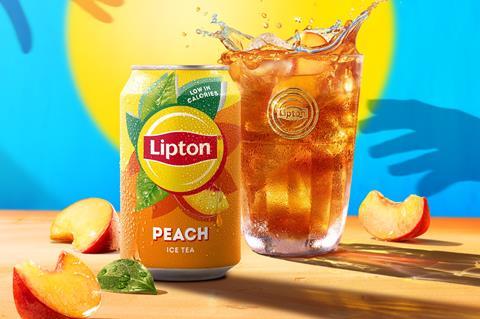
The low-growth, low-margin tea business represented the worst of all worlds for Unilever, as any efforts to grow its estimated €2bn sales would have diluted margins. So the 2022 £3.8bn spinoff with CVC Capital Partners made sense.
Lipton has struggled to stop the long-term structural decline in black tea sales, and volumes have been hit by commodity inflation.
But it’s driven cost out, cutting its total SKU count from 13,000 to under 3,000 SKUs, integrating its Pukka brand and selling off the last of its tea plantations.
Upfield
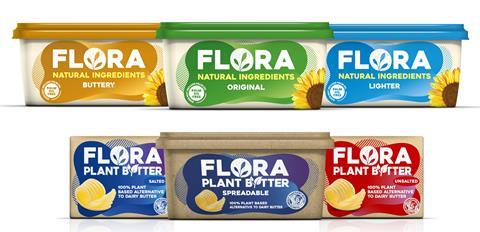
Unilever sold its margarine and spreads division to US private equity giant KKR for €6.8bn ($8bn) in 2018. A low-growth, high-margin business, Upfield increased innovation and marketing spend, but it’s struggled to grow volumes, and still has only moderate share of faster-growing subcategories, including plant-basedbutter, creams and cheese. In fact, volumes in the past two years have actually fallen as it pushed through price hikes amid soaring commodity price inflation on edible oils, though it has increased margins (to over 24% in 2023 from 21.1% in 2022). That gave KKR hope of a $10bn sale, but talks with potential bidders came to nothing. Instead, reports suggest KKR might be looking at IPO options to achieve an exit.







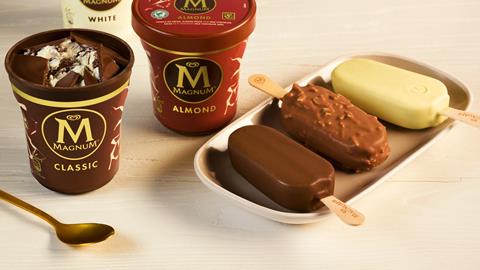
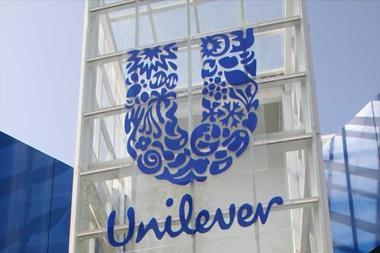











No comments yet